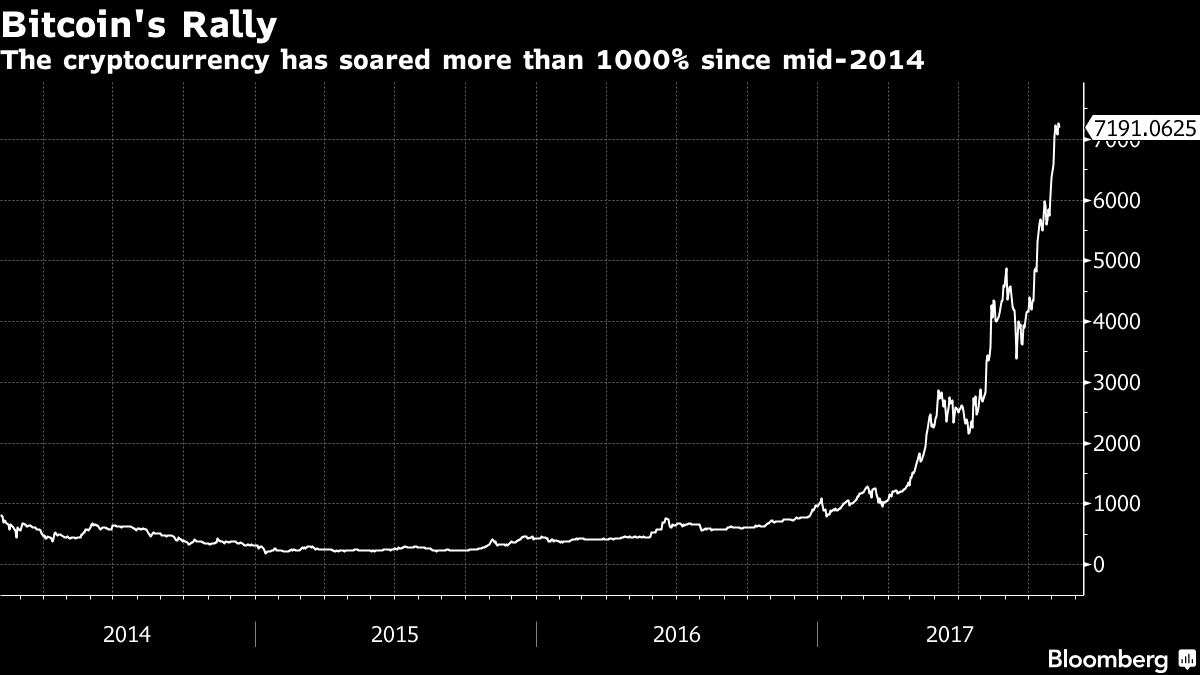Tim Draper was walking through a pavilion at a tech conference in Lisbon on Tuesday when he was cornered by an entrepreneur touting a new digital currency. No sooner had the venture capitalist heard the pitch than he was approached by another guy hawking his own initial coin offering. Another followed, then another.
It’s no mystery why cryptocurrency peddlers flocked to Draper. As founder of the Silicon Valley VC firm Draper Fisher Jurvetson, he’s backed the likes of Hotmail, Skype and Tesla Inc., and said he fell in love with bitcoin not long after it was introduced in 2009. In February 2014, 40,000 of his bitcoins were stolen when Mt. Gox, a big cryptocurrency exchange in Japan, was hacked and went belly up. At the time, Draper was certain the scandal spelled the end of the bitcoin era.
“The price fell 10 to 20 percent on the news but I thought, ‘That’s nothing, it should have gone to zero,’” Draper said in an interview at WebSummit 2017 in Lisbon.
A few months after the 2014 theft, he bought 30,000 bitcoins at an auction conducted by the U.S. Marshals Service. Prosecutors had seized the tokens as part of their case against Silk Road, a dark-web bazaar for narcotics and other contraband. At the time, bitcoin was trading about $600, which means Draper paid about $18 million for the block. Today the value of those bitcoin is $213 million, a 1,083 percent jump. Draper has been an unabashed promoter of the cryptocurrency ever since.

“This is the greatest technology since the internet,’’ said Draper, a lanky man wearing a red necktie festooned with bitcoin symbols. “This is a sociological transformation, it’s a movement.’’
It’s also an epic bubble, say skeptics including Jamie Dimon, chief executive officer of JPMorgan Chase & Co. Many investors still can’t define bitcoin. Is it a currency? A commodity? A store of value, like gold? Entrepreneurs worldwide are flooding the internet with copycats – more than 1,270 digital coins or tokens are now on the market, with a total value of $205 billion, according to CoinMarketCap, a website that tracks the industry.
At WebSummit, an annual confab of more than 60,000 techies, announcements of new ICOs came fast and furious – there was Uniti, the world’s first “certified green’’ cryptocurrency, and another called Valhalla that claimed it could help people recover from natural disasters. Asked whether the market was going to implode like the dotcom boom in the late ‘90s, Draper shook his head.
“People are always going to say there’s a problem, and that usually means there’s a lot more upside,” said the investor, who now heads the VC firm Draper Associates.
But what about fraud? Regulators are increasingly worried that in the frenzy to make fast money, many investors, especially millennials new to the capital markets, are plowing their cash into rackets, not companies. China and South Korea have outlawed ICOs, and Switzerland has imposed rules on how they go to market. The U.S. Securities and Exchange Commission now requires ICOs to register like IPOs.








